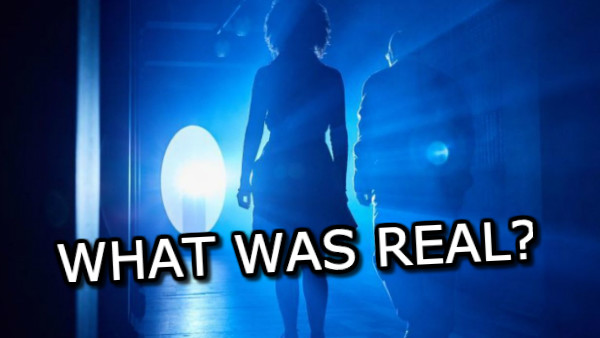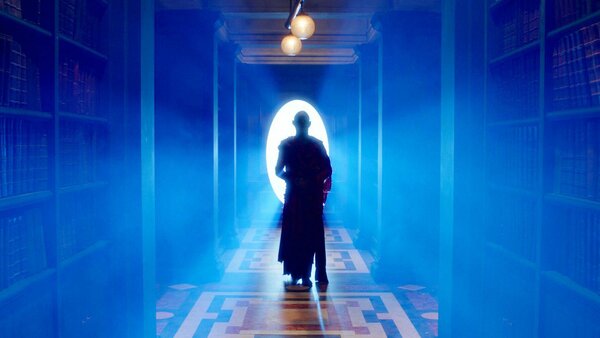Doctor Who Season 10: 7 Big Questions After 'Extremis'
Now the mystery of the vault has been revealed, Doctor Who is throwing up a ton of other questions.

After having been lulled into a false sense of security with
five very traditional and uncomplicated stories, Extremis has reignited the
polarised debate about Steven Moffat’s particular brand of Doctor Who. This
time there were no timey-wimey shenanigans (as far as we know), but instead we
were treated to two distinctive yet cleverly interwoven stories, one concerning
the contents of the vault and the other a typically inventive Moffat plot that, for almost the entire episode, revolved around simulated versions of our heroes.
The love it/hate it marmite meme is a much overused cliché, but this week it’s a fair assessment of an episode that has provoked some pretty extreme reactions on either side. Aside from the tired debate about the merits of Moffat’s writing and tenure as showrunner, the episode’s experimental nature and existential themes have thrown up a hell of a lot more questions than any other in the series so far.
Every so often Doctor Who surprises us with an experimental story and Extremis is undoubtedly series 10’s The Mind Robber, Warriors Gate, Midnight, Amy’s Choice, or Last Christmas. It’s unlikely that many of the questions doing the rounds will ever receive a definitive answer, so love it or loath it, this one’s going to be debated for years.
7. What Was Real And What Was Part Of The Simulation?

The quick answer would be that the only real world events are
the flashback scenes with Missy’s execution, and the Doctor receiving the e-mail
in the pre-credits sequence, and acting upon it at the end of the episode.
That will have disappointed some who liken the episode to those ‘it was all a dream’ stories so hated by Russell T Davies. But of course it isn’t quite that simple. For starters the results of the simulation experiment lead the Monks to start the real world invasion. And secondly, the Doctor’s sim has found a way of getting the message out there. By the end of the story, both sides have good reason to think they have won. The Doctor has exposed the plot and the Monks have flushed out the biggest threat to achieving their plans for world domination.
But on a more philosophical level, we are being forced to question what is real. The sims might be limited by a lack of randomness, effectively demonstrated by the ‘pick any number’ game, but they are designed to be real enough to have the potential to break out of the system, and to cross into different portals, like Nardole and Bill. At the end of the day, the real question is ‘what is reality anyway?’
Just as with the ending to Last Christmas where a doubt is raised as to whether the dreams have ended, so too here alternative realities may still be in play, perhaps even colliding with each other. A quick glance at the synopses for the next two episodes suggests this may well be the case.